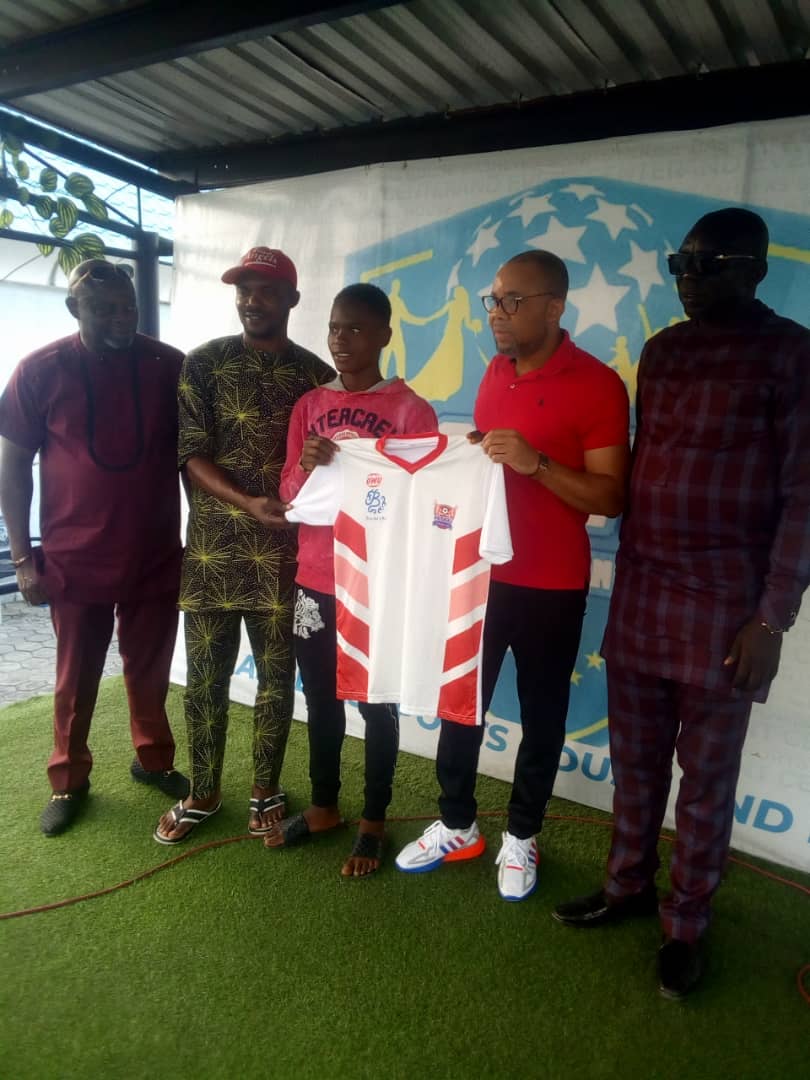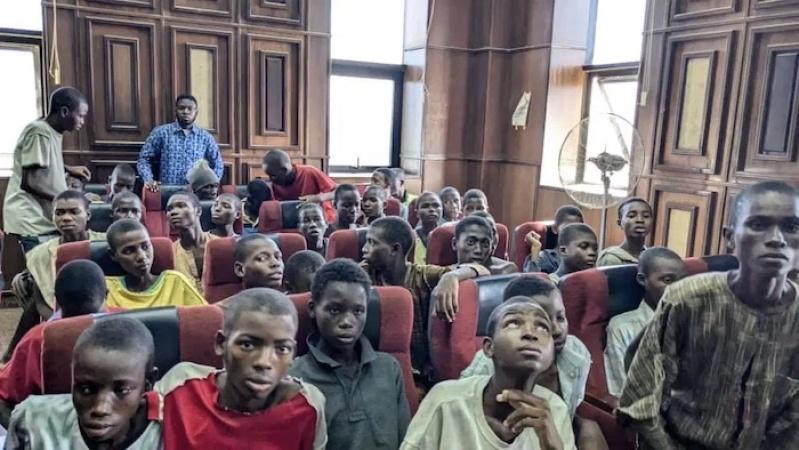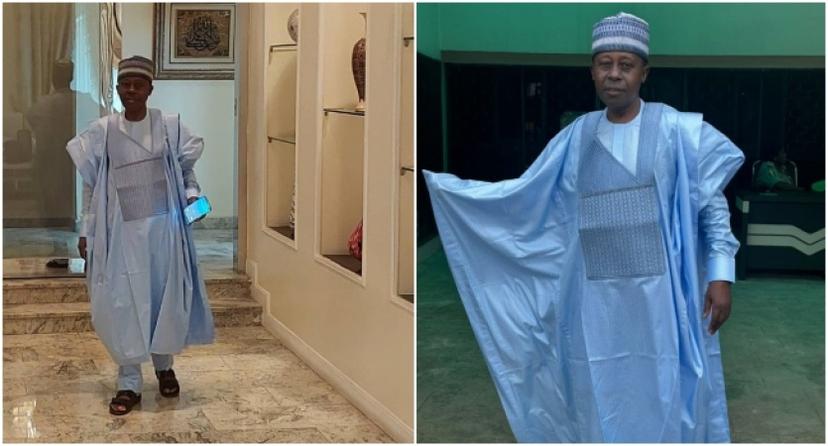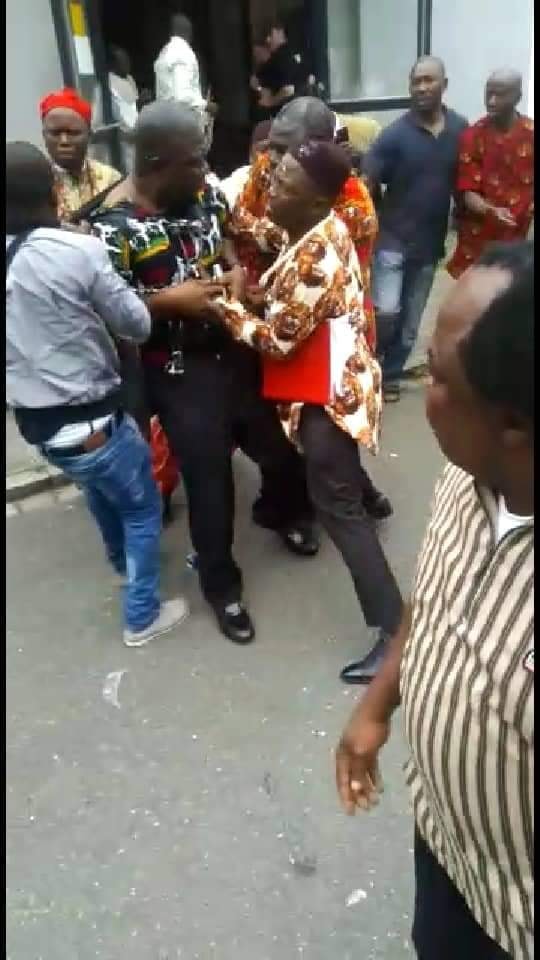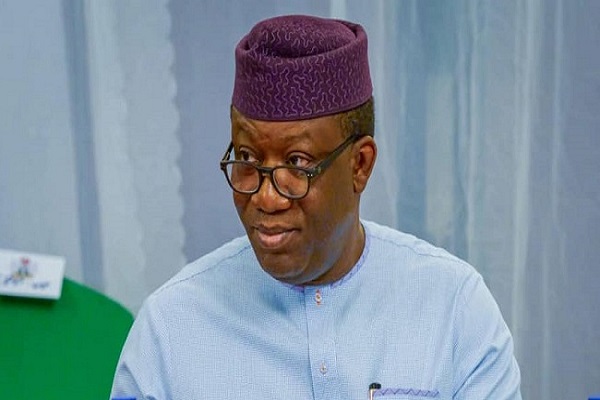
By Emmanuel Oladesu, The Nation
All eyes will be on Ekiti State, the Fountain of Knowledge, next year. Governor Kayode Fayemi will bow out. Another politician will assume the reins.
Between now and October 2022, the two major parties in the state may be engulfed in anxiety.
If President Muhammadu Buhari signs the amended Electoral Act Bill, with its retention of direct primary, into law, then, the choice of standard bearers will be decided at the direct primaries. If not, the indirect mode would be repeated.
While political parties will decide what mode of shadow poll to adopt in other climes, the ego war and supremacy battle between governors and legislators informed the decision of the National Assembly to propose a change in the legal framework. The agenda is being rationalised with the citing of inherent merits in direct primary, which gives room for the involvement of willing party members in the choice of candidates.
The Ekiti, with that of Osun poll, has a wider significance. The ruling and opposition parties want to build on their victories at the two polls as they warm up for the 2023 general elections.
Since 2003, succession has been a big hurdle in Ekiti State. All the political actors are familiar with one another. They understand their strengths and weaknesses. Many of them relate as brothers at township and state levels. Many Ekiti politicians are patriotic.
But the point of departure is political competition. It has been characterised by strife and rancour. The battle is usually hot, a semblance of the familiar do-or-die disposition towards the primary and ultimate election. What cannot be disputed is that Ekiti people are both stubborn and highly principled. Those attributes were exhibited by their illustrious forebears who successfully resisted Ibadan yoke and liberated themselves after a 16-year war against indigenous colonisers.
Power has been rotating, not among the artificially created three districts, but among the two main parties – the ruling All Progressives Congress (APC) through its forerunners of Alliance for Democracy (AD), Action Congress (AC) and Action Congress of Nigeria (ACN) – and the current main opposition Peoples Democratic Party (PDP).
Also, the two dominant parties – APC and PDP – had been victims of defections in recent past. Gladiators have narrow choices in Ekiti. Although Labour Party (LP) could have become the third force, it has often been used and dumped by progressive and conservative elements.
In 2003, a curious political earthquake swept across the Southwest. Ekiti was not insulated from the tremor. It ended the governorship career of Otunba Adeniyi Adebayo, who is now Minister of Trade and Investment. His colleagues – Aremo Olusegun Osoba (Ogun), Alhaji Lam Adesina (Oyo), Chief Bisi Akande (Osun) and the late Chief Adebayo Adefarati (Ondo) – were swept from office. Only former Lagos State Governor Bola Tinubu survived the onslaught.
Reflecting on the political massacre, President Muhammadu Buhari, who also challenged the second term victory of former President Olusegun Obasanjo, said AD governors were victims of Obasanjo’s diabolical political double-cross.
A PDP governor, Ayo Fayose, succeeded Adebayo. But Fayose could not seek re-election four years later.
A state of emergency was created. Obasanjo sent Administrator Idowu Olurin to Ekiti, reminiscent of the colonial days. After him came House of Assembly Speaker Tope Ademiluyi as Acting Governor.
In 2007, an AC candidate, Dr. Kayode Fayemi, and PDP flag bearer, Chief Segun Oni, clashed at the poll. The election did not pass the integrity test. The mandate was stolen. The battle shifted from the ballot box to the temple of justice.
The electoral agency had declared Oni as winner. Fayemi cried foul. The tribunal ruled that there should be a rerun. Up came House of Assembly Speaker Tunji Odeyemi as Acting Governor. The deduction is that in that atmosphere of instability, Ekiti has produced more heads of government than other states in the Fourth Republic.
Oni’s tenure was full of tension afterwards until he was removed by the Court of Appeal in 2010.
Fayemi came as a relief. But power slipped from his hand in 2014. In the past, Ekiti relished welfarist programmes. Suddenly, stomach infrastructure became the new slogan. Indigenes were tutored to demand the tarring of stomachs more than roads.
Fayemi was not left in the cold for too long. In 2015, he became Solid Minerals Development Minister. Also, Fayose bounced back. Yet, he failed to hand over to a successor in his party. A fierce battle ensued. Fayemi returned in 2018.
The question is: will the war scholar break the jinx and hand over to a successor in his party? Governors could not be expected to be indifferent to the nature, tendencies, idiosyncrasies and sentiments of their would-be successors. Scholars of democratic transitions and successions adduce two reasons. The first, in their view, is the protection or defence of legacies. The second is odd, controversial and debatable: cover-up.
The two main platforms are not at peace. The ruling APC has two camps. They revolve around Fayemi and internal opposition leaders – Prince Dayo Adeyeye, Senator Tony Adeniyi, Senator Babafemi Ojudu, and Oyetunde Ojo. The latter group, more or less, belongs to Southwest Agenda for Asiwaju (SWAGA).
The PDP has its challenges. The gulf between the two factions is deep. The fold is divided at the state and local governments. External forces are meddling in the affairs of the chapter.
Leading the first group is former Governor Fayose. The second group is led by Senator Biodun Olujimi. Fayose’s group controls the state executive committee of the party.
In APC, both camps parade governorship aspirants. The governor’s camp has endorsed the former Secretary to the State Government (SSG), Biodun Oyebanji, a former university teacher, a “young founding father of Ekiti State,” and a loyal chieftain. His rival, as it were, Chief of Staff Biodun Omoleye, has jettisoned his ambition and supported his colleague. Also, it is doubtful, if House of Assembly Speaker will contest. Three days ago, a supposedly member of the camp, Senator Opeyemi Bamidele, one-time Lagos Information and Strategy Commissioner and former House of Representatives member, threw his hat in the ring in a manner that aptly suggested a crack in the wall.
The first group is in control of the State Executive Committee of the party that enjoys court recognition. But, despite the judicial reverses, the Adeyeye group is not opting out. A notable governorship contender in the group is the veteran journalist, lawyer, ex-Afenifere spokesman, ex-Director of Research and Publicity in AD, ex-Ekiti SUPEB chairman and former Minister of State for Works, Adeyeye.
If the two groups are not working at cross purpose, it would be relatively easier to wade off the PDP threat. So far, reconciliation has been difficult.
There are other contenders-Yemi Adaramodu of House of Representatives, Bamishile, Dele Faparusi and wealthy engi neer and contractor, Kayode Ojo.
However, it is not certain that the PDP is putting its house in order. The party is addicted to crisis. It is a threat to itself. The acrimony is worrisome to its national leadership. Compromise is lacking. In the Olujimi camp are two governorship aspirants: Olujimi and Oni. The lone aspirant in Fayose’s group is former state legislator, one-time Environment Commissioner and former party chairman Bisi Kolawole.
Senator Olujimi has declared interest. She is a reputable party leader and a grassroots mobiliser, who has remained popular in her district. But, it will be a miracle if the former deputy governor emerges as candidate.
PDP has other aspirants. But outside the two warring camps, they are puppets, pretenders and day dreamers.
Recently, aspirants from the South Senatorial District started chasing shadows. Political difference momentarily collapsed as they came together, asking for zoning to the district. They are exercising their fundamental right to agitate. But, it is futile. Since the days of the famed confederation, christened ‘Pelupelu,’ Ekiti, made up of 120 towns and villages, has remained one zone.
Ikole, Ido and Ifaki (North), Omuo, Ikere and Ilawe (South) and Ado, Efon-Alaaye, Ijero, and Aramoko (Central) are not significantly different in dialect, culture and customs. Civil servants under the military only partitioned the states into three zones for senatorial contest. Although geographically, Omuo is in Ekiti North, it was grouped with Ekiti South. Ilawe, which is a few minutes’ drive from Ado (Central), was grouped with the South. Therefore, the zoning argument is devoid of logic, and no basis can be found for it in the physical geography and history of the state.
Some people have delved into history, brandishing the evidence of indivisibility and cohesion. In the Third Republic, when the governorship slot was zoned to Ekiti in the old Ondo State, Ekiti was treated as a homogeneous unit of the state.
In Osun, there is cultural diversity. Some differences exist among the units: Ife, Ijesa, Oyo, Osun and Igbomina. In Ogun, there are Egba, Ijebu, Remo and Egbado. In Oyo, there are Ibadan, Ibarapa and Oke Ogun. In Ondo, there are Akure, Akoko, Ondo/Idanre, Owo, Ikale, Ilaje, and Ijaw. In Lagos, there are Awori, Ijebu (Epe, Ibeju-Lekki and Ikorodu), Egun in Badagry and Lagos Islanders. Since there is no pronounced cultural divide in Ekiti, the argument for zoning is weak.
The first governor, Adebayo, is from the Central. His successor, Fayose, hails from the Central. Oni is from the North. He was succeeded by Fayemi, from the North. Fayose from the Central displaced him. He was succeeded by Fayemi from the Central.
Factors likely to shape the periodic contest at various times and in varying degrees are the platforms, the candidates, their structures and resources, federal might, and wish of the people. Zoning, to many people, is a lazy approach, a subjective factor and a shallow point.
The agitation for zoning also underscores an acknowledgement of certain shortfalls or inadequacies. It may wrongly project a status of zonal inferiority, which is non-existent.
However, the two parties have always targeted either Ado and Ikere for running mates. Apart from Chief Paul Alabi from Ijesa-Isu (North) and Olujimi (Omuo in the South), other deputy governors are: Biodun Aluko, Bisi Omoyeni and Sola Eleka (Ikere), and Dr. Sikiru Lawal, Funmi Olayinka, Prof. Modupe Adelabu and Chief Bisi Egbeyemi(Ado). It is not for any ethnic or religious balancing. Parties were only targeting votes from the two populous towns.
How do the two parties stand? Reliance on the power of incumbency may be may be insufficient. It may smacked of over-confidence. Yet, it cannot be ignored in political calculus. It is critical. But it cannot exist in isolation. It should be supported by other factors.
The governor, all members of State Executive Council (Exco), council chairmen and councillors, House of Representatives members and two senators belong to the ruling party. The PDP has a senator. This may inspire confidence in the ruling party; the confidence about a formidable structure.
But there is an inexplicable pattern of succession in Ekiti, which may not even take cognisance of the achievements of incumbent progressive government. This is worrisome in the poor Southwest state.
The current governor and his predecessors have tried their best. Their performances vary, based on their contrasting vision and ideas, focus, competence, experience, styles, and resources at their disposal. The state is not as rich as Lagos and Rivers. It is lamentable that some people have deridingly referred to Ekiti as a state on the fringe in regional and national political calculations.
While Ekiti parades the best of intellectuals, professors aluko, agbe, and doctor asa (apology to former Western Premier Samuel Akintola), who have made invaluable contributions to national development, it is systematically marginalised in the area of federal infrastructure. The dual carriage way from Lagos, through Ibadan and Ife, terminates at Ilesa, a stone throw from the Ekiti boundary town of Efon. They blame it on the undulating topography. Ekiti is a hilly enclave.
Three challenges will face Ekiti as it prepares to choose a new governor. The first is the challenge of restrictive campaigns due to the COVID-19; should the pandemic persists throughout the electioneering period. The protocol was violated in the recent Anambra State governorship campaigns.
The second is the challenge of vote-buying, which is becoming rampant in the Nigerian polity. In Yoruba parlance, it is now fondly called ‘dibo koo sebe.’ It behoves the Independent National Electoral Commission (INEC) to remind the electorate that the laws against electoral malpractices, no matter how weak, are still in force.
There are few notorious councils associated with over-voting, break down of law and order and vote suspension, postponement or cancellation in the past. Therefore, the third challenge is that of thuggery and violence in some councils. The electoral commission should always reiterate its commitment to a credible exercise. The objective can only be realised if all the stakeholders cooperate with INEC.
Usually, after the declaration of poll result, it is possible that some people will like to subject it to judicial test. It is not new, although Fayemi refrained from that trend in 2014, when he was displaced by Fayose.
Many in the race are qualified to succeed Fayemi. Some of them are eminently qualified. But, it is important for the people to treasure the advice of the old man of Owo, esteemed ‘Action Grouper,’ former Federal parliamentarian, last President of Egbe Omo Oduduwa and first elected governor of Ondo State.
In his congratulatory message to the Ewi of Ado-Ekiti, following the creation of state in 1996, the late Chief Adekunle Ajasin urged the people of Ekiti to always ensure that only a rational leadership is installed at every periodic election in the state.
